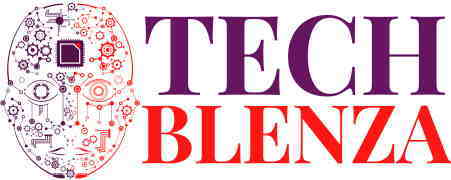What are the core functions of ehr?
Electronic health records (EHRs) have revolutionized how healthcare providers manage patient data. EHRs provide a centralized digital record of a patient’s medical history, including lab results, medication history, and diagnoses, among other information. EHRs offer a range of benefits to healthcare providers, including improved patient care, increased efficiency, and reduced administrative burden. To fully understand the benefits of EHRs, it’s important to understand the core functions of EHRs.
A few core functionalities of the electronic health record system enable the functioning of the ehrs. The medicine institute has also identified them that enable quick output of the health record system. The different functionalities of the electronic health record system are as follows.
Health Information and data
The ehr’s are crucial in replacing paper medical records with demographic information and patterns. You can get instant access to patient data using the EHRs, which will help you find medical records, allergies, medications, diagnoses, and other test results. Medical history access has become more straightforward and accessible because electronic health record systems can hold more data than paper medical records. Therefore, make sure to customize the ehr that can help to suit the business demands.
Result management
Filing lab results at the right time in paper medical records can become challenging for users and lead to forced and misplaced errors. The core functionality of the electronic health record systems is to simplify the result management task, making testing more effective and efficient and improving patient results. Multiple high-quality ehr systems allow faster access to the lab results. Moreover, the electronic health record system can also prevent the outcome of abnormal patient results and reduce the chances of redundant testing by doctors. The automated results generated by the ehr can enhance communication between the doctor and the patient and improve the care management facility.
Order management and entry
Computerized order entry is another compelling feature of the ehr software. It gives an ehr meaning to the software and contributes towards the effectiveness of software. The system reduces the time required for filling the orders and also reduces the chances of illegible handwriting. An electronic health record system can detect and remove duplicate errors from the database. Electronic orders for medicines and other medical equipment can lessen the expenditure of producing and filing paper forms for the orders and the results. The EHR system can also detect the proposed medication for a particular patient record.
Electronic communication and connectivity
The EHRs promise faster and more secure access to the patient’s medical records and allow data sharing. This system will allow you to share data with other providers and enhance the quality of care coordination. The system also proves to be effective for self-management and patient education. The patient portal, electronic messaging system, and email connectivity of the electronic health record systems will enable faster interaction between the patients and the doctors. Providers can easily share the lab results with the doctors and engage in their communication.
Patient support
Patient support and education are very crucial for the management of chronic conditions. The EHR system software can provide timely patient education. Moreover, the software can host thousands of library materials for easy access. They can generate treatment plans and follow-up instructions so the patients know their next steps. All these programs and patient support through the electronic health record systems can help to assess the patient’s progress without much hassle.
Admin procedures
The EHR system can improve the scheduling, billings, and filings. The system can be customized accordingly to support electronic patient registration. This will reduce the data entry time and lessen the waiting time for the patients and the doctors. The system can help you request prior authorizations and approvals, lessening waiting times. Finally, the admin and decision support tooling of the EHR system can improve the adherence of the patient to guideline-based care. This procedure will also result in the improvement of the quality scores and reduce the claim denials.
Population health management and reporting
Multiple reporting requirements are to be made if you face numerous insurance types. The quality payment program needs multiple entries for a variety of programs. Therefore, implementing ehr software can satisfy all your demands more efficiently and effectively. It can efficiently draw data from your system without charts and manual data entry. It can also help you manage a patient’s population health by providing simple access to crucial indicators. You can quickly identify the problematic areas through regular monitoring and address those problems quickly. Dashboards on electronic health record systems can improve the efficiency and the quality of care you provide your customers.
Final Words
In conclusion, electronic health records (EHRs) are a vital tool for modern healthcare providers, offering a centralized digital record of a patient’s medical history. The core functions of EHRs, such as managing patient data, streamlining workflows, and improving patient outcomes, offer a range of benefits for healthcare providers and patients alike.
EHRs facilitate better communication and coordination between healthcare providers and empower patients to take a more active role in their healthcare. With the continued development and implementation of EHRs, healthcare providers can look forward to a more efficient and effective healthcare system that delivers improved patient care and outcomes.
These are crucial aspects and the core functionalities of the electronic health record system. If you can implement all these aspects using your EHR, communication and engagement between patients and doctors will become much simpler and hassle friendly.


0 comments